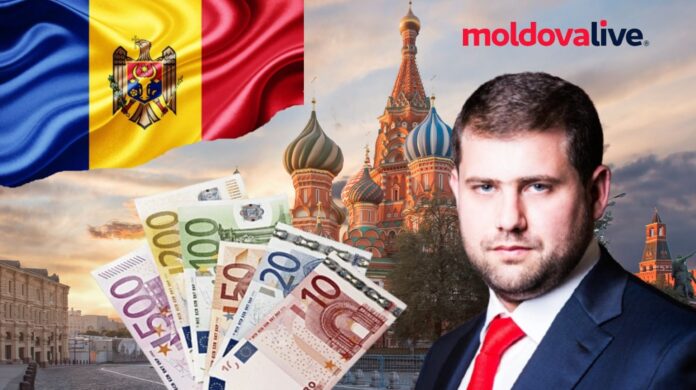The sniffer dogs at Chisinau Airport have been working extra hard in recent months, searching for money that might be evidence of Russian meddling in Moldovan politics, BBC reports.
Ami, a black retriever, gives every suitcase that rolls in on the baggage claim belts a good sniff on all sides. If she detects cash, she will freeze. Back in May she was doing that a lot.
That is when customs officers began finding large amounts of money on passengers arriving via connecting flights from Moscow. People who had never left Moldova before were returning from a few days in Russia with wads of notes.
“Almost everyone had money: 2,000, 3,000, 7,000 euros”, the head of customs at Chisinau Airport, Ruslan Alexandrov, remembers. The amounts themselves were not illegal but the patterns were suspicious.
“There were certain flights: Moscow-Istanbul-Chisinau, Moscow-Yerevan-Chisinau,” the customs chief explains. “Normally people don’t come in with that much money. Not from Moscow.”
Matthew Goddard Ami, a black labrador, working as sniffer dog at Chisinau AiportMatthew Goddard
Ami at work in Chisinau Airport
So police and prosecutors began seizing the cash. In one day alone they say they scooped $1.5m (£1.2m). No-one ever asked for their money back.
The authorities believe the cash mules were part of a major and ongoing operation to buy political influence run by a fugitive Moldovan oligarch named Ilan Shor. Convicted of major fraud in Chisinau, he is now resident in Russia which will not extradite him.
Ahead of two key votes this weekend, the capital’s airport is on alert. Flights from all “high risk” routes are met by sniffer dogs and at least half the passengers are pulled over for extra baggage scans.
On Sunday, President Maia Sandu is running for re-election on a staunchly pro-EU platform, challenged by 10 other candidates. Many are openly sympathetic to Moscow; some see Moldova as a “bridge”.
Voters will also get to cast their ballot in a referendum on whether to enshrine Moldova’s goal of EU accession in the constitution. In fact, membership talks have already begun but the country has been in a battle over its political direction for decades, ever since Moldova gained independence from Moscow as the Soviet Union fell apart.
That East-West tug has intensified since Russia’s full-scale invasion of Ukraine. President Sandu – a former World Bank economist first elected on a promise to clean up corruption – then steered Moldova much more sharply towards the West. She began to openly identify Vladimir Putin’s Russia as a major security threat.
The Kremlin denies playing any role in Chisinau politics, but officials here accuse Russia of operating via proxies to disrupt and destabilise the country.


